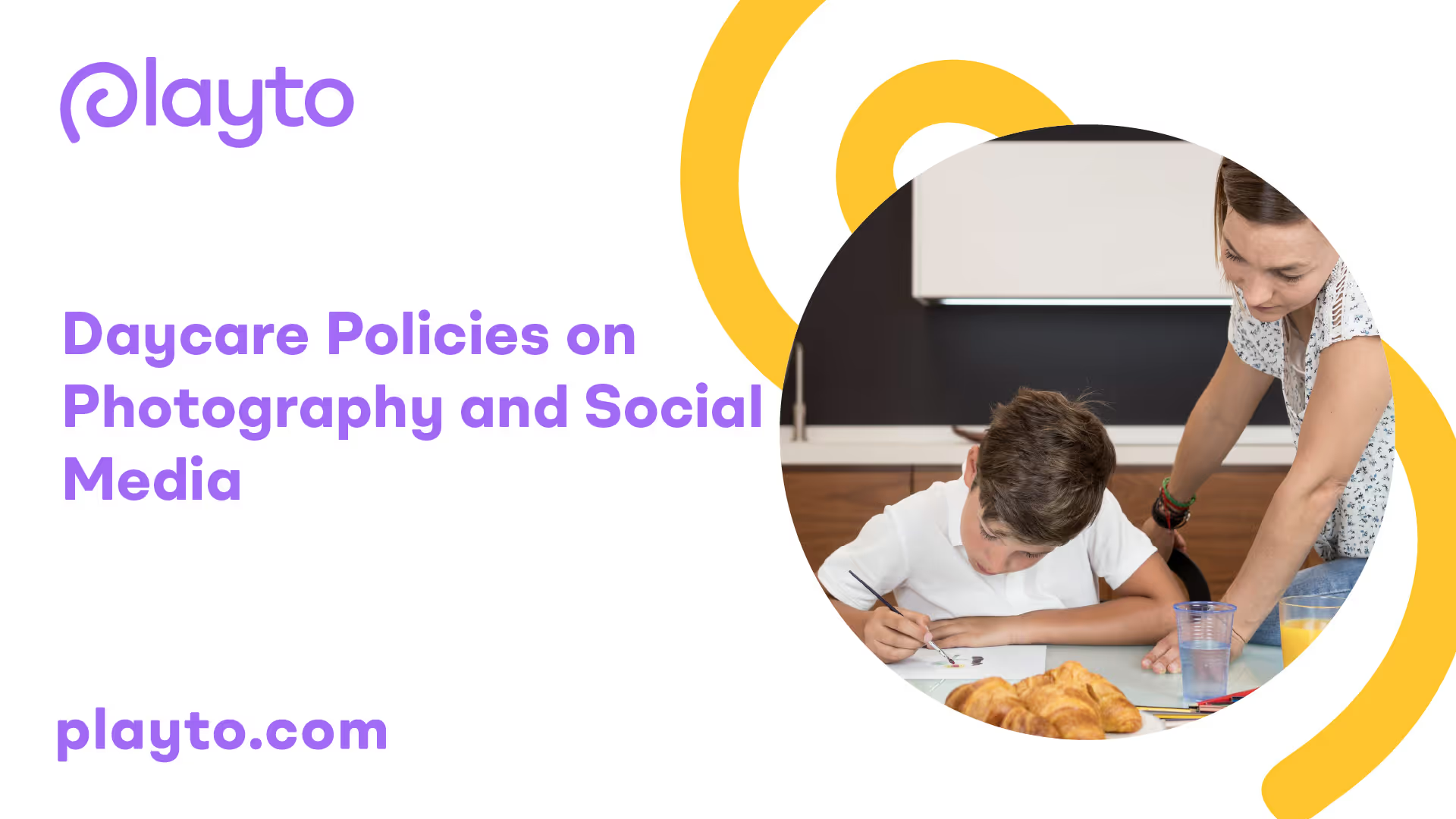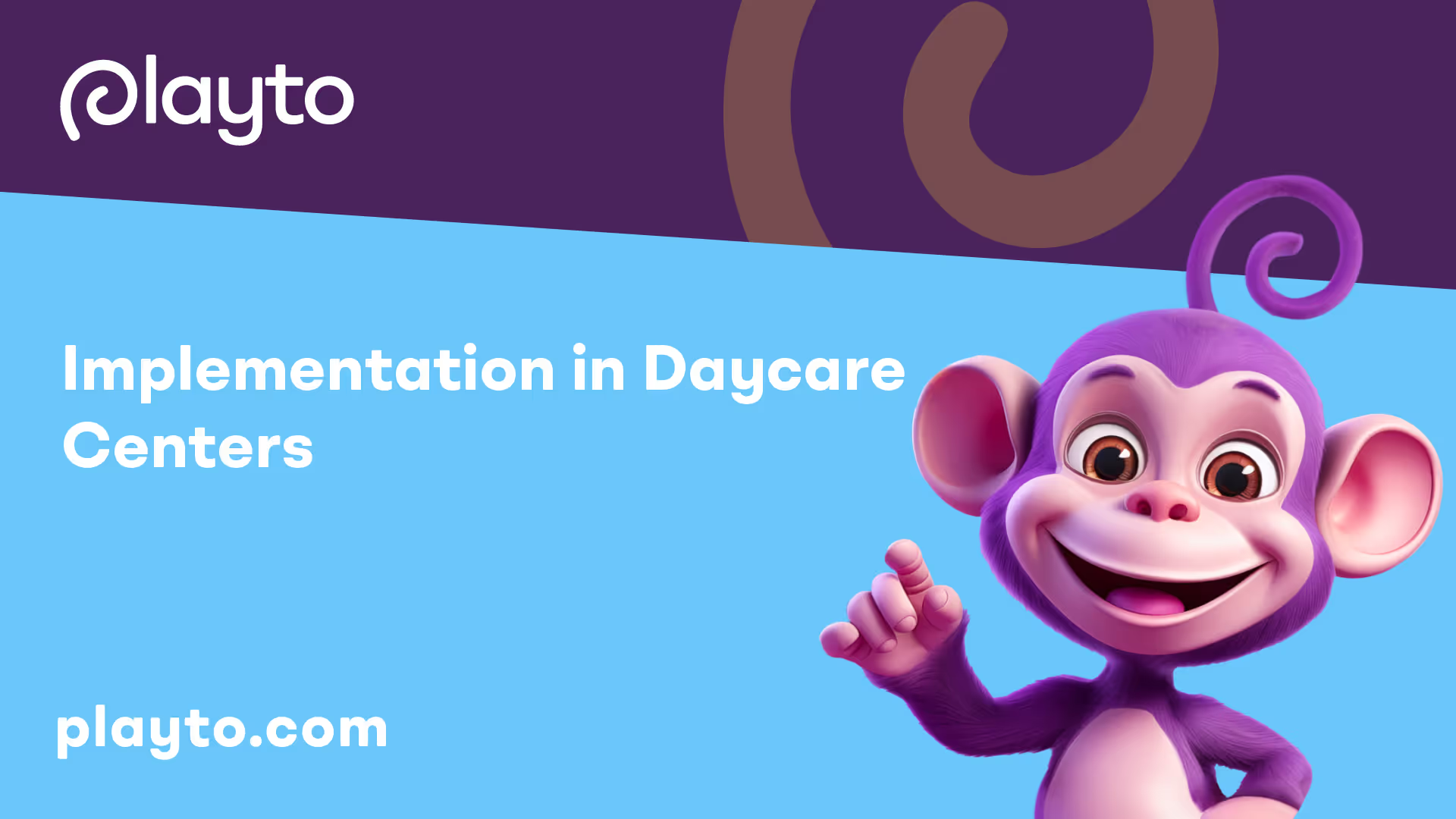
Understanding Daycare Policies
When it comes to daycare centers, having clear and well-defined policies is crucial. This section will explore the importance of daycare policies and the legal considerations that come into play.
Importance of Daycare Policies
Daycare policies serve as a guide for both the daycare staff and the parents/guardians of the children attending the facility. These policies outline the expectations, procedures, and protocols that ensure a safe and nurturing environment for all children.
Having comprehensive daycare policies helps establish a framework for consistent care, communication, and decision-making. They provide clarity on various aspects, including parental involvement [1]. These policies ensure that everyone involved, including staff, parents, and children, are aware of the expectations and guidelines in place.
Additionally, daycare policies help in establishing consistency in the care provided. They help maintain a structured environment that fosters learning, growth, and development. When parents/guardians are aware of the policies, they can make informed decisions about enrolling their child in a particular daycare center, ensuring a good fit for their family's needs.
Legal Considerations
Daycare policies also address legal considerations that daycare centers must adhere to. One important aspect is the policy regarding photography and social media usage. Taking and sharing pictures of children without parental consent is illegal in some states. Daycare providers should have a permission to photograph form on file for each child, ensuring that they have obtained proper consent from parents/guardians. This form should outline how the photographs will be used, whether for internal purposes or for promotional materials, and whether parental consent is required for each specific use.
It is crucial for daycare centers to respect the privacy and wishes of parents/guardians regarding the use of their child's photographs. If parents explicitly state that they do not give consent for their child's images to be used for promotional purposes, daycare centers must adhere to their wishes.
To ensure compliance with legal requirements, daycare centers should have a written policy on photography and social media usage. This policy should outline the parental consent requirements and usage restrictions for photographs and videos taken at the daycare center. By having such policies in place, daycare centers can safeguard the privacy and rights of the children and maintain a safe and secure environment.
Understanding the importance of daycare policies and the legal considerations surrounding photography and social media usage sets the foundation for a responsible and trustworthy daycare center. In the following sections, we will explore the specific guidelines and measures that daycare centers can implement to ensure the protection of children's privacy and maintain a safe environment.

Photography and Social Media Guidelines
When it comes to photography and social media, daycare centers have specific guidelines in place to ensure the safety and privacy of the children in their care. These guidelines typically include parental consent requirements and usage restrictions to protect the rights of both the children and their families.
Parental Consent Requirements
Daycare centers understand the importance of obtaining parental consent before taking and using photographs of children. Consent forms are typically provided to parents during the enrollment process, allowing them to indicate their preferences regarding the usage of their child's photographs. In some cases, parents may explicitly state their refusal to give consent for the use of their child's photos, as mentioned in the BabyCenter Community forum.
To ensure compliance with legal and ethical standards, daycare providers should have a permission to photograph form on file for each child. Taking and sharing pictures of children without parental consent is considered illegal in some states. By obtaining explicit consent from parents, daycare centers can ensure that the privacy preferences of each family are respected.
Usage Restrictions
Daycare centers also establish usage restrictions for photographs taken within their facilities. These restrictions are in place to prevent unauthorized sharing of images and protect the privacy of the children. For example, some daycares have strict rules regarding cell phones and cameras in classrooms, requiring parents to use their phones in designated areas outside the classroom to prevent unauthorized photography [4].
Furthermore, daycare centers may specify how and where photographs can be shared. For instance, parents may be asked to post photographs containing children other than their own only to a password-protected site with the teacher's knowledge, ensuring that the images are not publicly accessible. It's important for parents to follow these guidelines and refrain from posting photographs of other children on public platforms, such as social media, without explicit permission from the child's parents.
By establishing parental consent requirements and usage restrictions, daycare centers take proactive measures to protect the privacy and rights of the children in their care. These policies ensure that photographs are used responsibly and with the utmost respect for the families involved. Daycare providers should regularly review and update their photography and social media guidelines to maintain compliance with legal considerations and evolving privacy standards.

Implementation in Daycare Centers
To effectively implement daycare policies on photography and social media, daycare centers should establish clear rules and guidelines regarding cell phone and camera usage, as well as obtain consent for external photography.
Cell Phone and Camera Rules
Some daycare centers have strict rules regarding cell phones and cameras in classrooms to maintain confidentiality and protect children's privacy. Parents may be required to use their phones in designated areas outside the classroom to prevent unauthorized photography [4]. This ensures that photos and videos are only taken by authorized individuals and that the privacy of children is respected.
Daycare centers may also prohibit parents from taking pictures of children on school property with their personal cell phones or cameras, allowing only the use of devices provided by the school. In some cases, a password-protected website or platform like Smug Mug may be used to safeguard privacy when photos are shared. By implementing such rules, daycare centers can maintain control over the dissemination of images and protect the confidentiality of the children in their care.
Consent for External Photography
Daycare centers should obtain explicit consent from parents or legal guardians before taking photographs or videos of children for external purposes. This includes obtaining consent for sharing images on social media platforms, websites, or other online platforms. Consent should be obtained in writing and clearly outline the purpose of the photography or filming.
When professional photography or filming services are used, daycare centers should ensure that parents and children are informed and provide consent before the event takes place. The photographer should be briefed on capturing images solely for the specified purposes and only of children who have provided consent. This helps to ensure that parents have control over the use and distribution of their child's images [6].
By implementing clear cell phone and camera rules and obtaining consent for external photography, daycare centers can establish a safe and secure environment for children while respecting their privacy. These policies help to protect the confidentiality of children and maintain control over the use and distribution of images captured within the daycare setting. To learn more about other daycare policies, such as those related to parent involvement, celebrating birthdays, or outdoor play, visit our articles on daycare policies.
Privacy Protection Measures
When it comes to daycare policies on photography and social media, daycare centers prioritize the privacy and safety of the children in their care. To protect the privacy of children and maintain a secure environment, daycare centers implement various privacy protection measures. Two crucial aspects of these measures are online posting restrictions and child identification safeguards.
Online Posting Restrictions
Daycare centers often have specific guidelines regarding the online posting of children's photographs. Parents are typically asked to post photographs that contain children other than their own only to designated platforms with the teacher's knowledge. For example, some daycare centers utilize password-protected websites like Smug Mug to ensure privacy and control access to the images [5].
Moreover, parents are usually requested not to post photographs containing children other than their own on any other web-based digital sharing or social media site without specific permission from the child's parents. This policy aims to prevent the unauthorized dissemination of children's images and safeguard their privacy.
Child Identification Safeguards
To further protect children's privacy, daycare centers implement child identification safeguards. Children are never identified by name or class in any photographs used on the daycare center's website or for any other publicity purposes. This practice ensures that children's identities remain confidential and reduces the risk of unauthorized individuals accessing their personal information.
Daycare centers often have guidelines for teachers and co-oping parents regarding the use of photographs taken within the center. When teachers or parents take photographs of children using the daycare center's camera, the photographs are used respecting each family's stated permission on the photo release form. When posted on platforms like Smug Mug, where parents have access, passwords are employed to further safeguard privacy.
By implementing online posting restrictions and child identification safeguards, daycare centers ensure the protection of children's privacy while still allowing parents to have access to photographs of their own child. These measures align with the broader goal of creating a safe and secure environment for children within the daycare setting.
To learn more about other important daycare policies, check out our articles on daycare policies on parent involvement, daycare policies on celebrating birthdays, and daycare policies on parent-teacher conferences.
Social Media Policies
In today's digital age, social media has become a powerful tool for communication and sharing. However, when it comes to daycare centers, it is essential to have clear daycare policies regarding photography and social media. This section will focus on two key aspects of these policies: employee awareness and regular policy review.
Employee Awareness
Childcare centers should prioritize employee awareness when it comes to social media policies. It is crucial to remind employees about child privacy rights and the importance of respecting parental wishes regarding their child's presence on social media. Parents who do not want their children featured on social media should have their requests respected, and everyone within the center should be aware of which children are not to be featured [7].
Employees should be educated about the potential consequences of inappropriate social media use and the impact it can have on the center's reputation. Even posts on personal accounts can reflect poorly on the center and lead to serious consequences. By ensuring employee awareness, childcare centers can foster a culture of responsibility and professionalism when it comes to social media usage.
Regular Policy Review
Social media policies for daycare centers should be regularly reviewed and revised to keep up with the changing needs of employees and the center. It is important to adapt policies to address emerging challenges and new social media platforms. By conducting regular policy reviews, centers can ensure that their guidelines remain effective and relevant.
Regular policy reviews also provide an opportunity to reinforce the importance of responsible social media use among employees. Centers can use these reviews as educational sessions to remind employees of the guidelines, address any questions or concerns, and emphasize the potential impact of their online actions on the center's reputation.
By implementing and regularly reviewing social media policies, childcare centers demonstrate their commitment to the well-being of the children and families they serve. This fosters trust and confidence among parents/guardians, leading to positive word-of-mouth referrals and a stronger reputation within the community. Additionally, a well-crafted social media policy serves as an educational tool for both staff and parents/guardians, creating a positive and respectful online environment for all parties involved.
By promoting employee awareness and conducting regular policy reviews, daycare centers can effectively manage photography and social media guidelines, ensuring the privacy and safety of the children in their care.
Ensuring Compliance and Safety
To maintain a safe and secure environment for children, daycare centers must enforce their policies on photography and social media. This section focuses on policy enforcement and the consequences for violations.
Policy Enforcement
Enforcing daycare policies on photography and social media is essential to protect the privacy and well-being of children. Daycare centers should have clear guidelines in place and ensure that all staff members are educated and trained on these policies. Regular communication and reminders should be provided to staff and parents/guardians regarding the importance of policy compliance.
In the event of a policy violation, daycare centers should have a designated process for addressing and addressing such incidents. This process may include:
- Documenting the violation: When a violation occurs, it should be documented, including details of the incident, individuals involved, and any evidence available, such as photographs or screenshots.
- Investigation: The daycare center should conduct a thorough investigation to gather additional information and determine the extent of the violation. This may involve speaking with staff members, parents/guardians, and potentially consulting with legal professionals if necessary.
- Communication: Once the investigation is complete, the daycare center should communicate the findings to the individuals involved and take appropriate action based on the severity of the violation.
- Remedial actions: Depending on the nature and severity of the violation, remedial actions may include warnings, additional training, suspension, or termination of employment for staff members involved. Parents/guardians may also face consequences for violating the photography and social media policies, such as restricted access to the daycare center or termination of enrollment.
Consequences for Violations
Consequences for violating daycare policies on photography and social media should be clearly outlined in the policy guidelines. These consequences serve as a deterrent and help ensure compliance with the established rules. Some possible consequences may include:
- Verbal warning: For minor violations or first-time offenses, a verbal warning may be sufficient to remind individuals of the importance of policy compliance.
- Written warning: If a violation is more serious or a repeat offense occurs, a written warning may be issued, outlining the specific policy violated and the potential consequences of further violations.
- Suspension: In cases where the violation is severe or ongoing, suspension from the daycare center may be necessary. This provides time for reflection and reinforces the seriousness of the policy breach.
- Termination: For repeated or egregious violations, termination of employment for staff members or termination of enrollment for parents/guardians may be necessary to protect the safety and well-being of the children in the daycare center.
It's important for daycare centers to handle policy violations promptly, consistently, and in accordance with local regulations and laws. By enforcing policies and implementing appropriate consequences, daycare centers can maintain a safe environment for children and ensure compliance with photography and social media guidelines.
For more information on daycare policies, you can refer to our articles on daycare policies on parent involvement, daycare policies on celebrating birthdays, daycare policies on parent-teacher conferences, daycare policies on holiday celebrations, daycare policies on outdoor play, and daycare policies on sick children.
References
- [1]: https://www.howtostartahomedaycare.com/daycare-permission-to-photograph-policy/
- [2]: https://community.babycenter.com/post/daycarepostedphotosofchildwithoutpermission_illegal
- [3]: https://forums.thebump.com/discussion/thoughts-on-daycare-posting-pictures-on-website-facebook
- [4]: https://annandalecoop.org/photo-policy-protecting-your-privacy/
- [5]: https://learning.nspcc.org.uk/online-safety/photographing-filming-children
- [6]: https://www.childhr.com.au/importance-social-media-policy-childcare-centre/
- [7]: https://childcarebusinessconnect.com/blog/existing-providers/social-media-policy-understanding-photo-waivers/
